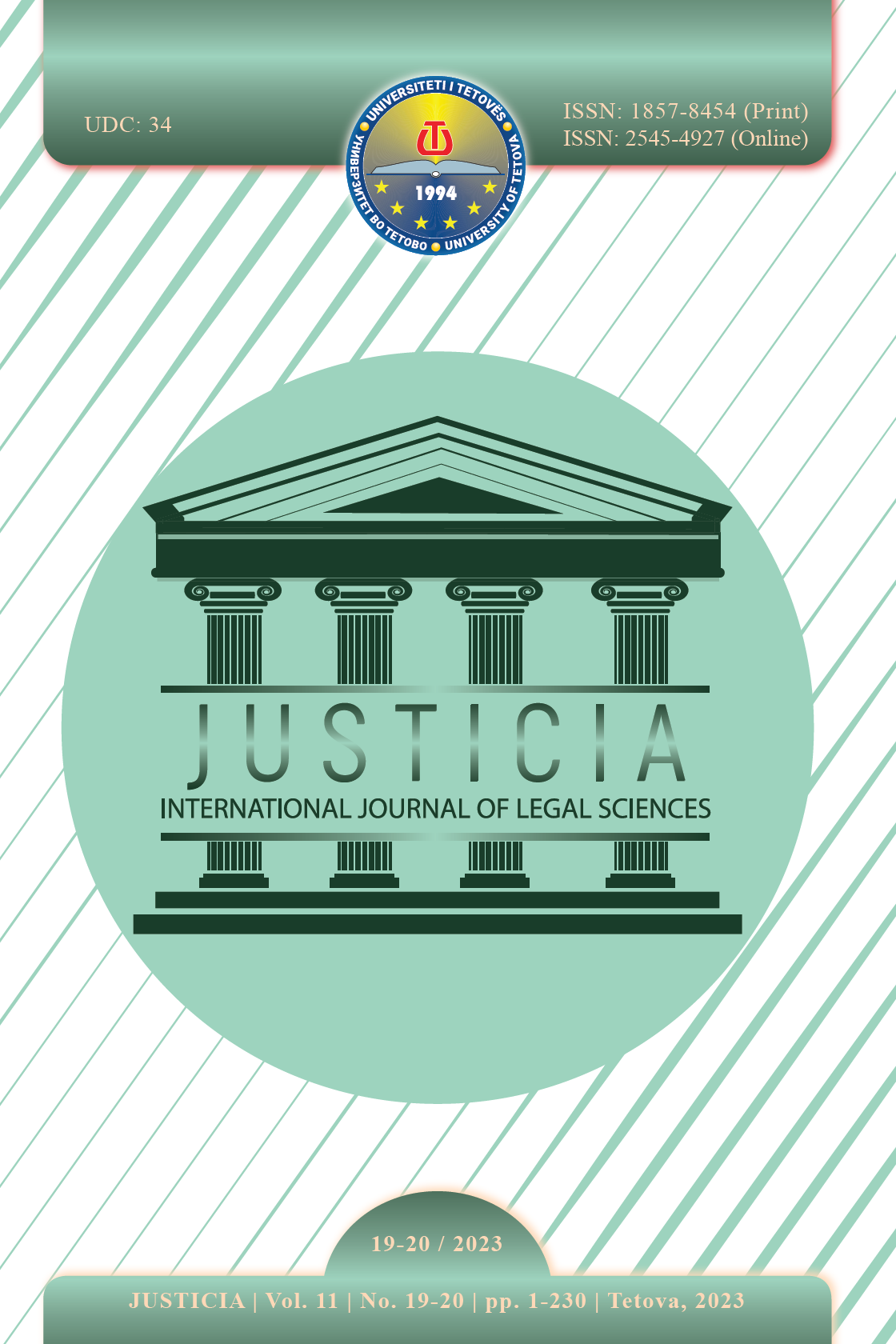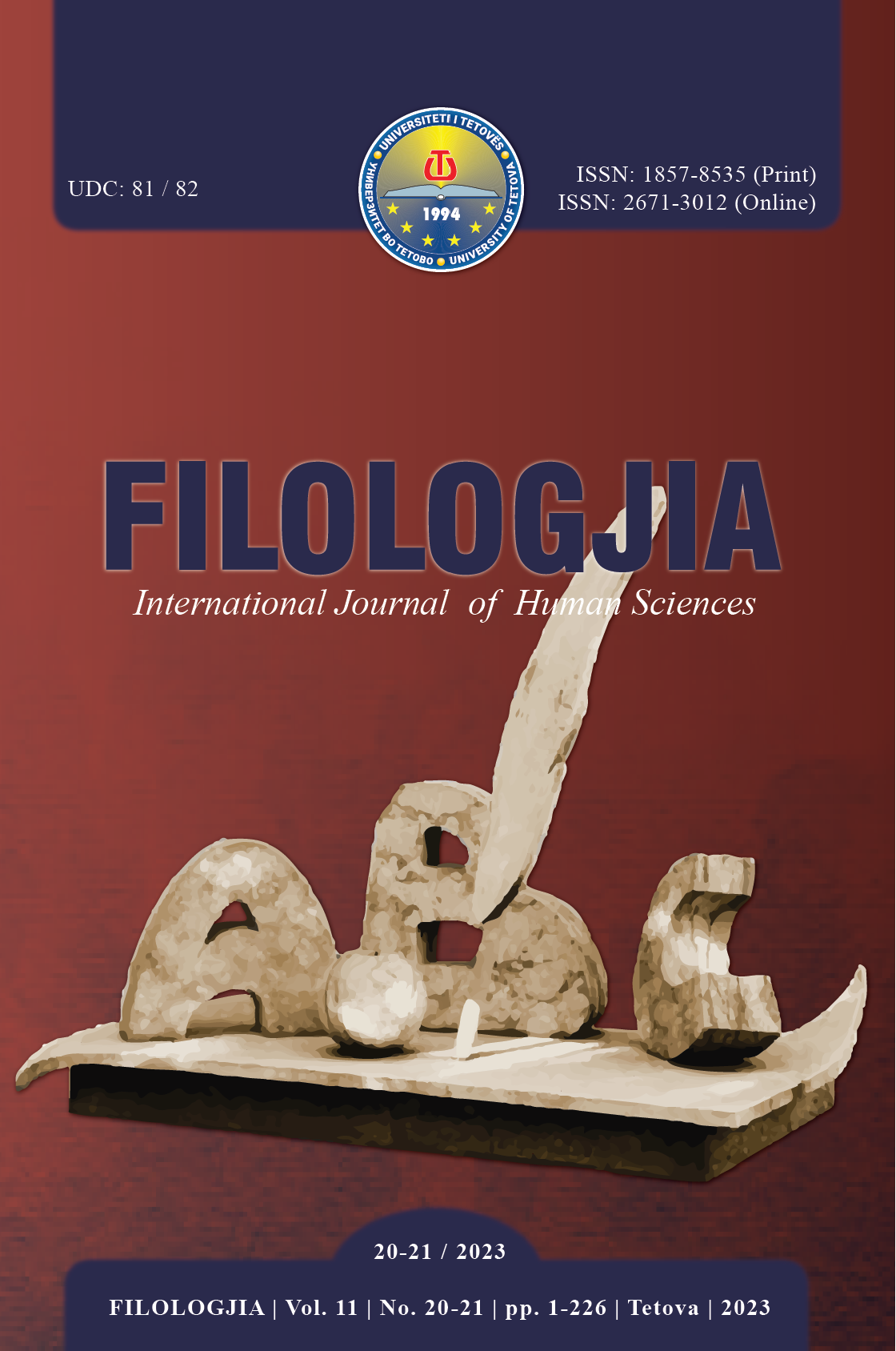SEVEN BASIC NOTIONS OF POLITICAL PHILOSOPHY
Author(s): Ymer ISMAILI -DEDJA / Language(s): English
/ Issue: 19-20/2023
Keywords: Political system; political culture; political science; political structures; contemporary political system; political strategy; political issues; political development
1. Notion: Politics Politics; represents the ability (dexterity) to find optimal solutions for disputes in essence contradictory between individuals and groups, in the general social interest, thus ensuring the unhindered functioning of various social-state entities, where shocks and conflicts for themselves are avoided them1.1 Definitions - Political science Science on life in the political community. Learning about the rules of civil-citizen life. The discipline which together with ethics and economics make up pragmatic philosophy. Political science studies the noblest social elements such as; good, right, justice, virtues, general utility. In the history of ideas, political science is also defined as "royal science". Etymology, issues related to the police, art of government with the state. 1.2 Political Systems - Gabriel Almond Despite the relative development of American political science, until the fifties of this century, there was no complete analysis and comparative research of the problems of contemporary political systems. In the past twenty years, new analytical instruments, procedures and tools for the study of political processes have been developed in political science, and a huge amount of empirical data has been collected, empirical buildup both about political systems in developed countries and so on and about the political issues of developing countries. It made it all possible to build a method of comparative analysis in the field of contemporary political systems. In American political science, the great credit for developing the comparative method in that area belongs to Gabriel Almond. In this story, we are talking about the Israelis efforts of Mr. Almoad. J. Coleman and B. Powell to build theoretical approach that would be suitable for comparing contemporary political system.The system is the word that in the sense of structure, method, set of rules, social order is used in many areas of life, economics, education, health, military… A set of elements, components, objects, subjects, ideas, which interconnect, interdepend and interact with them ... make up - system.Functioning of systems;-Vertical – Constitutional - Horizontal – Administrative 1.3 Political partiesParty: Part of a whole.Prehistoric periods similar to political parties; sects, clans, cliques, currents, factions...The creation of modern states with their structure created the fragmentary partial social interest that in the process developed social and political diversities, thus created political parties.The union of free citizens who want to influence and change the social situation with political means, and not only, in the general national, regional, local, global interest, i.e. social change. 1.4 Electoral democracy – ParliamentarianismThe multitude of ideas as the antipode of Monism, Monolithism, Monopoly...In the social and political sciences, with pluralism, the particularity, autonomy and distinctiveness of groups which are components of social and ideological development and of the directions and goals of social developments are accepted and emphasized.Political competition between political parties and other entities participating in elections. 1.5 Definitions for legitimacyThe legitimacy in the broader sense marks the establishment and action of political power on the principles that are generally accepted within a political community.Members of a (political) community do not accept order only from their habit and customs, individual interest in its validity and reasoning.This situation constantly assumes the harmonization of the "nature" of political order and the principles of its establishment with the "way of a people" (Montesquieu).Legitimate is the order in which there are compliance between the political formula that justifies the title and the opinion of the people (the political subjectivism of the individual) on the nature of that order.The legitimate order constantly lies in the relationship assigned to the principles of law and justice and includes the state of "well-regulated order" (Role).This situation is contrary to the states of illegality, anarchy, insecurity and arbitrariness.The problem of legitimacy is an essential problem of political philosophy, it is “one of the most complex philosophical issues.Russo marked it as a whole of the "first principles" of politics and defined it as the central problem of political theory.1.6 Notion: LegalityNarrow meaning; legal-positivist/ hierarchy of legal norms.Broad meaning; legal-philosophical and political-philosophical / philosophical, ethical, political lessons, social facts, which influence the determination of legal provisions.Legality, legality represent the principle of modern legal systems and one of the basic ideas of legal and political philosophy.The narrow meaning of two forms;1. As a request/obligation that the legal acts of the lesser power are compatible with the legal acts of the highest legal power (formal legality).2. As an obligation of the administration bodies, the judiciary and other bodies with public authorizations which must work in accordance with the laws and other general acts supported by the law (material legislation).As a criminal offense can be considered only what was previously defined by law. 1.7 Ideologies & IndoctrinationsThe truth must be told to those who act the truth!We have a revolt (awareness) progress for environmental pollution, and absolutely nothing for mental, spiritual dirt!For every day, the human body and soul is "attacked", injured, but the injuries of the soul are much more serious than the injuries of the body!Forms of violence. Physical violence is defined as coercion, whereas violence (without violence) against the spirit is Obedience.The notion of ideology: Ideology is a system of ideas, beliefs and values through which the basic interest of a group (class, clan, lobby) is reflected, but not directly but indirectly, that is, as a rule, the interest is more or less reflected as the interest of the majority in society so that rationally it would be easier to impose it on other social groups as their own interest, for orientation and action.
More...


